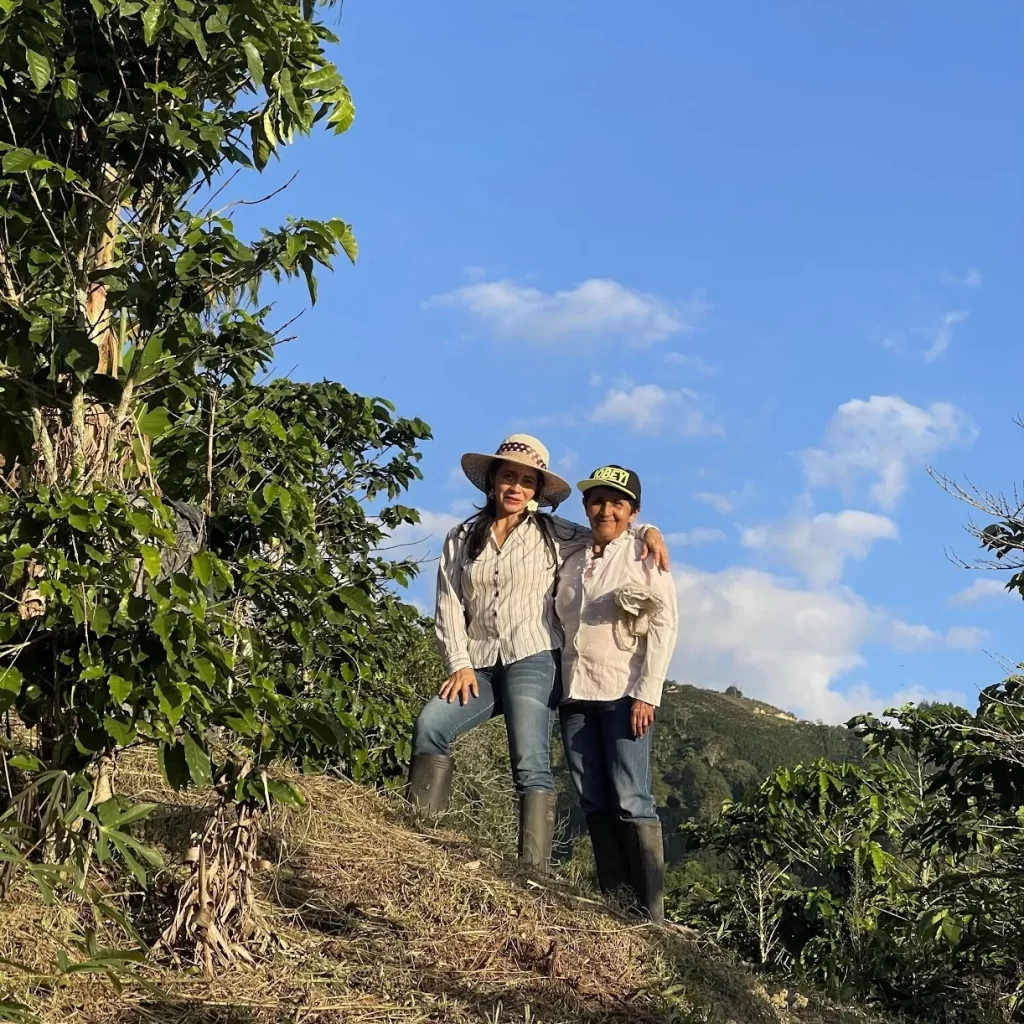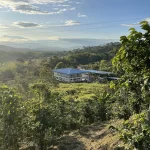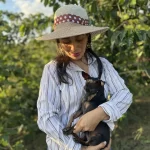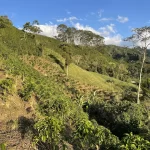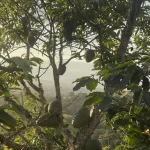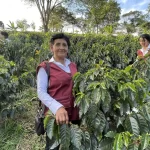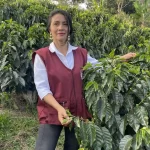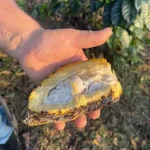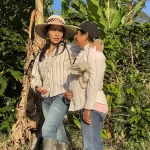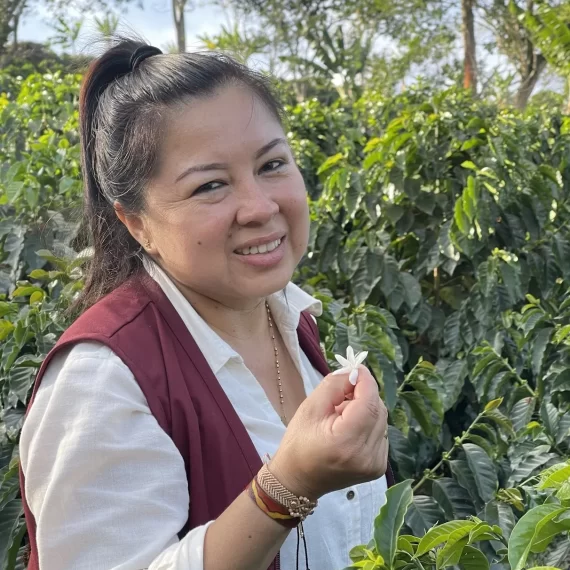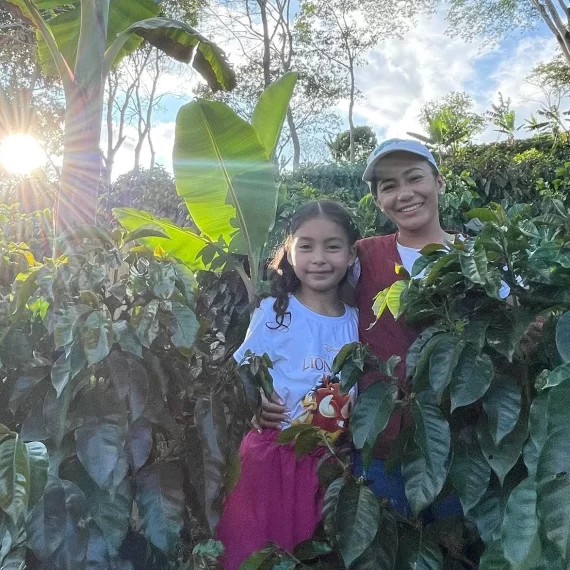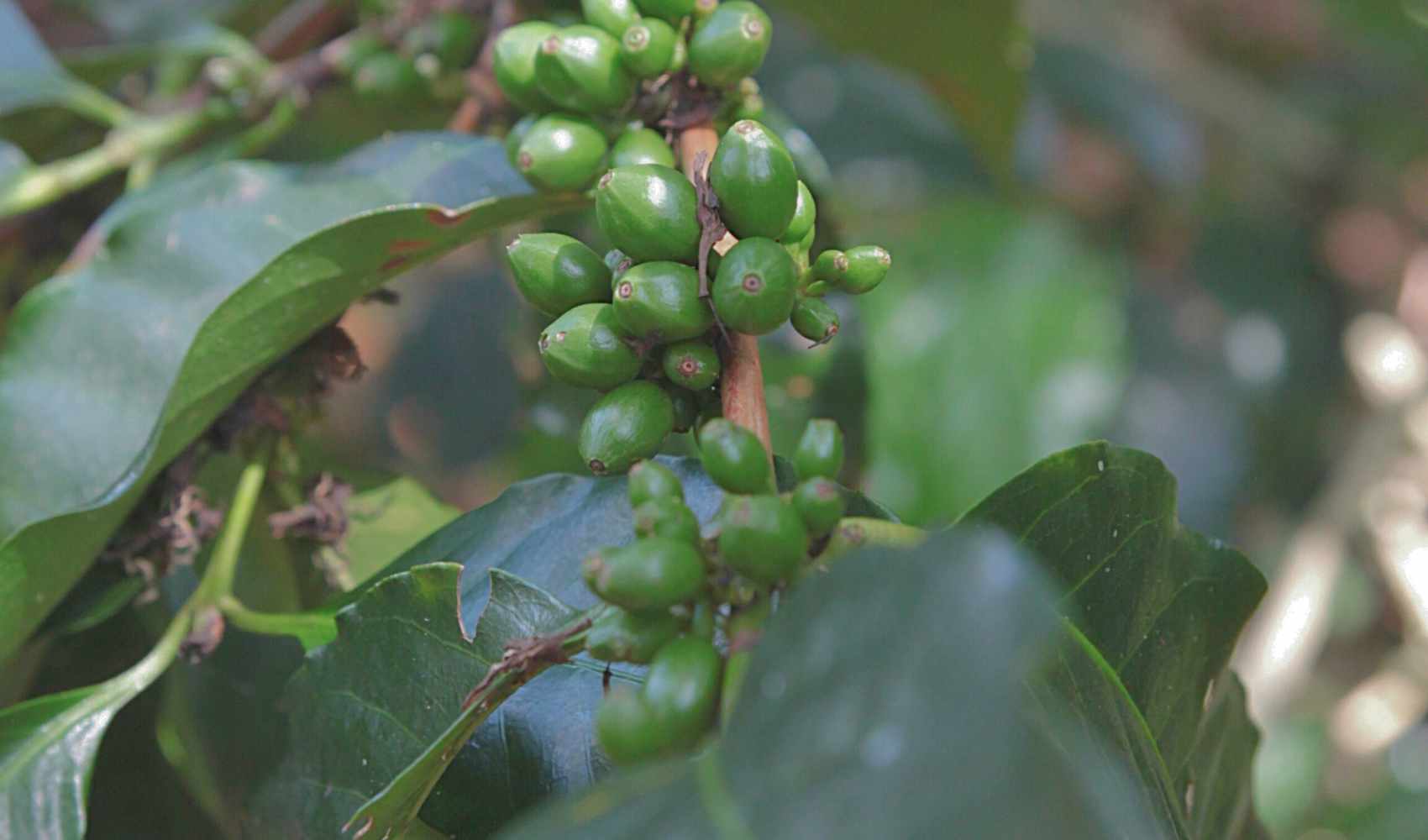
Monica & Omaira
Omaira Tovar and her daughter Mónica Andrea Correa represent two generations of farmers united not only by their love for coffee but also by their determination to continuously learn and improve. Omaira, 59 years old, has been involved with coffee since childhood. At just eight years old, she began helping on the farm, including tasks like de-pulping coffee. Despite life’s challenges, including the loss of her husband and crop issues, she remained dedicated to coffee, which allowed her to raise five children. Today, she works on the Buenos Aires farm with her youngest son and experiments with new varieties, such as Pink Bourbon.
Mónica Andrea Correa, her daughter, has been involved with coffee her entire life. She grew up surrounded by coffee and helped with harvesting and processing from a young age. Six years ago, she moved to the Villa El Carmen farm, closer to the town of Pitalito, to better support her children’s education. Here, she continues the family tradition and involves her children in coffee work – her daughter focuses on roasting and barista skills, while her son helps manage the farm.
About farms
The Buenos Aires farm, managed by Omaira, is located in the Timaná area at an altitude of 1470 m.a.s.l. The farm grows varieties such as Castillo, Colombia, Caturra, and Pink Bourbon. Omaira uses a combination of biological and chemical fertilizers, with the biological ones producing better cup results. She plans to transition fully to biological fertilizers over time. In addition to growing coffee, she also roasts small batches for sale.
The Villa El Carmen farm, managed by Mónica, is situated in the Pitalito area at an altitude of 1400 m.a.s.l. The farm is diverse – in addition to coffee, it features fruit trees (guanabana, orange trees) and the family also keeps a few cows and pigs. Thanks to a project Mónica participated in as a member of the Asogloriellas association, a bioreactor for organic fertilizer was built on the farm, which they are gradually transitioning to exclusively.
About the coffee
Both farms focus on traditional coffee processing, but thanks to courses and experiments, they are gradually exploring new methods. Omaira has started experimenting with the Pink Bourbon variety and trying new fermentation processes.
Mónica, together with her daughter, recently tested fermentation with microorganisms, which yielded excellent results. In the future, she plans to expand these experiments and focus on producing coffee of the highest quality. Her dream is not only to improve coffee quality but also to modernize the processing infrastructure on the farm, making it efficient and well-organized – just like her kitchen, as she says.
Coffee from these two farms, combining tradition and innovation, is the result of the hard work and passion of two generations of farmers.
The process starts with the Castillo variety coffee cherries fermenting in their whole form for 2 days in open bags. Afterward, the cherries are depulped, leaving the beans covered in mucilage, and placed in sealed bags for an additional 2 days of fermentation to enhance their flavor complexity.
Once fermentation is complete, the coffee is washed to remove any remaining mucilage. The beans are then dried for approximately 10 days, ensuring the proper moisture content and consistency needed for a high-quality final product.


